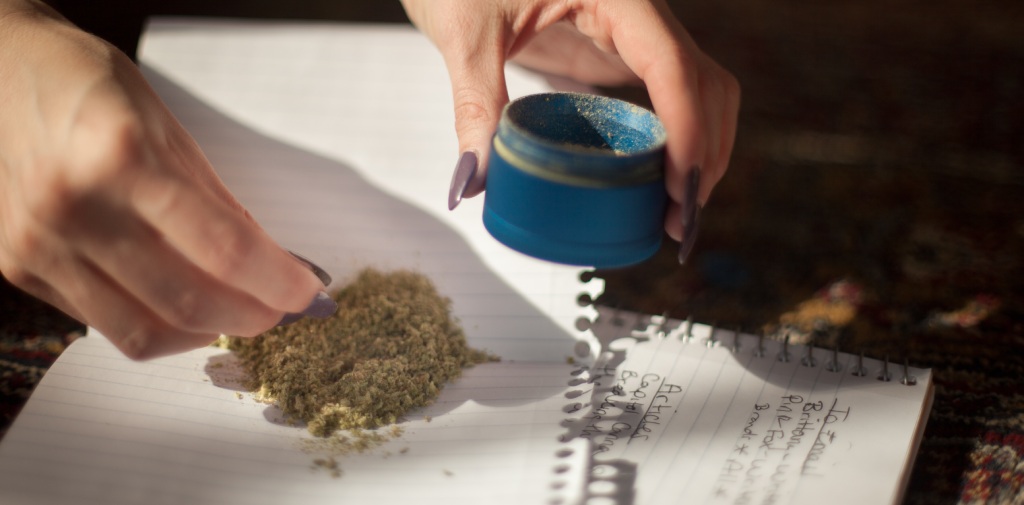Hemp-derived cannabinoids are federally legal and generally safe. But that doesn’t mean you can’t partake a little too much. You may end up feeling anxious, out of it, distrustful, or otherwise uncomfortable.
Wondering what to do if you get too high? Above all else, remember that the feeling will pass. Getting too high doesn’t put you in serious danger by itself. And you will start to feel better with time.
Keep reading to learn what else you can do to reduce negative side effects and start feeling better.
What Happens When You Get Too High?
Most cannabinoids (although not all — CBD is a notable exception) have psychoactive effects. In other words, they can alter your sense of perception, improve your mood, and otherwise make you feel different than normal.
On a technical, biological level, your body’s endocannabinoid system interacts with the cannabinoids you take. The cannabinoids from a vape or edible bind to the receptors that exist naturally in your body. As Healthline points out, that can lead to desirable and undesirable effects.
If you take too large of a dose, those undesirable effects can feel amplified. You may feel paranoid, anxious, or unable to cope with the altered sense of perception that you’re experiencing.
Negative thoughts about your current state can play a role in feeling too high as well. It’s a totally understandable response. However, they can contribute to those unwelcome sensations and make you wonder about your mental health.
In our next section, we’ll share some specific tips for what to do if you feel too high. Now, let’s look at some more important, high-level details to keep in mind.
Severe Reactions to Cannabinoids are Relatively Rare
High-quality cannabinoids are generally regarded as safe. This is true in the sense that they don’t cause serious negative reactions in a significant number of users.
There’s no doubt that you can feel paranoid, depressed, scared, or confused if you get too high. Symptoms like increased heart rate or nausea are common. You may even throw up if you get too high.
However, those symptoms don’t usually indicate a serious and larger health issue.
That said, if you experience a severe reaction beyond common symptoms, act. Be sure to protect your health and seek treatment. It doesn’t matter if the issues are related to the cannabinoids themselves. It’s always important to deal with a potential medical emergency promptly.
Time Eventually Solves the Problem of Feeling Too High
As time passes, the effects of cannabinoids will diminish. If you feel too high, remember that the sensations will wear off over the coming hours.
GoodRX points out that simply reminding yourself that this unpleasant feeling isn’t permanent can help. It’s a good way to support yourself in getting back to normal.
Avoid Getting Too High in the First Place: Pay Attention to Dosing and Frequency of Use
This advice won’t help if you’re already feeling too high, but it can definitely assist you in the future.
Take a careful approach to your dosing and frequency of use. When you dose edibles, for example, consider starting off with half of what the package recommends. Because edibles take time to kick in, it’s especially important to not overdo it.
If you’re using vapes or flower, begin with just a few puffs. Then, once you feel the effects for a little while, ask yourself if you want more. This is especially important when trying out a new cannabinoid, strain, or product.
What to Do if You Get Too High: 8 Tips to Feel Better

1. Find a Quiet and Safe Space
Feelings of anxiety, paranoia, or overstimulation are common after an excessively high dose of cannabinoids. A quiet and comfortable space can get you away from things that trigger those feelings. Having some control over your surroundings, even just by being in a quiet space, can help you feel a little less on edge.
2. Occupy Yourself
What happens if you get too high on weed or many other cannabinoids? Many people tend to worry about that sensation and fixate on it. And that ultimately makes the experience worse.
Find something soothing and relaxing that you can do, even if it’s just watching TV or listening to soothing music. A distraction can help to de-escalate this fixation and make you feel a little better.
3. Hydrate
Staying hydrated is always important. When you’re too high, drinking water helps your body get a foundational nutrient.
Having a simple, attainable, and positive task is also a good way to occupy yourself. As we mentioned in the previous tip, that can help manage your symptoms as well.
4. Avoid Stimulants and Other Drugs
Coffee or alcohol may seem attractive when you get too high. You might feel like they could help you even out your experience or reduce some negative effects. However, they might also make you feel worse as those substances also act on your body.
Don’t put too much stress on yourself. Stick to something simple and nourishing, like water and a light snack.
5. Use Calming and Mindfulness Techniques
Taking deep breaths, focusing on your breathing, and even some simple self-care like taking a hot shower or bath may help you feel better. If you already know how to, consider meditating. These options can all take the focus away from feeling too high.
6. Make Yourself Comfortable
Fluff up a pillow, get your favorite blanket, or fully recline your chair. Put yourself in a comfortable position to help reduce the stress and anxiety that can come with feeling too high.
7. Talk to a Friend
Connecting with someone you know and trust can help shift your focus from feeling too high. Whether you’re with them in person or make a call or text, they can offer some support.
8. Get your Cannabinoids From a Trustworthy, High-Quality Source
Using high-quality, lab-tested cannabinoids is reassuring. Always look for retailers who share the results of independent lab testing on the products they offer. Knowing you can trust your source helps to eliminate fear related to product contamination or excessively high potency.
Delta 8 Resellers is here to help. Shop our entire range of products!



